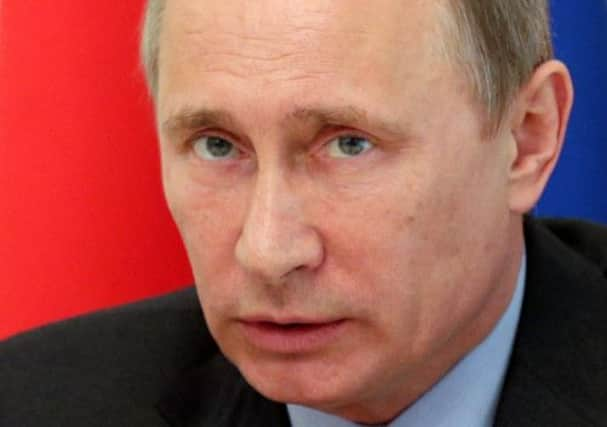Russian man is tortured and killed for being gay


A 23-year-old man in Russia’s southern city of Volgograd was tortured and killed after revealing he was gay during a drinking session last Thursday night, investigators said yesterday, taking a rare step by linking a murder to homophobia.
A 22-year-old friend of the victim and a former convict, aged 27, have been detained for the attack, which gay rights activists say is a brutal example of rising violence against homosexuals in the year since president Vladimir Putin latched on to family values to shore up his support in Russia’s largely conservative society.
Advertisement
Hide AdAdvertisement
Hide AdAlong with a planned new law banning the spread of gay “propaganda” among minors, Mr Putin has also overseen a religious revival that aims to give the Orthodox Church – whose leader has suggested that homosexuality is one of the main threats to Russia – a more public role as a moral authority.
Gay rights campaigner Nikolai Alexeyev said the draft law, and Mr Putin’s criticism of gays for failing to help Russia’s population decline, amounted to “a call to action for the scum who committed this crime”.
“It essentially gives these people carte blanche to commit such crimes,” he said of the law, a local version of which is already in place in Russia’s second city of St Petersburg.
There are no official figures on anti-gay crime in Russia, and campaigners say what numbers are available mask the true extent of attacks on gay, lesbian, bisexual and transgender people. Most go unreported, or are not classified as such by the police.
Mr Alexeyev said. “All these crimes are categorised as something ordinary – they argued over a bottle of vodka, or there was ‘personal animosity’.
“The real motive of hate is not mentioned.”
Activists say the government’s conservative policies offer “unspoken support” for violence.
Andrei Gapchenko, a senior investigator in Volgograd, said one of the suspects had admitted torturing the victim.
He said: “Four young people were drinking … And one of them already knew, he’d heard from others, that he [the victim] was of an untraditional sexual orientation.
Advertisement
Hide AdAdvertisement
Hide Ad“He asked him the question and the victim said yes … After that, one of them hit him, he fell to the floor, and then they brutally beat him, set fire to the clothes he was wearing, slashed his anal area and then stuck three bottles in there, again beat him and then threw a 20kg stone onto his head.”
He said violent crime was not unusual in Volgograd, but that homophobic crime was.
Many Russian men like to be seen as a “muzhik” – which literally means “peasant”, but is used to suggest a tough, single-minded man with conservative ideals who dominates his household.
Such men have been part of Mr Putin’s power base since he was first elected president in 2000. He has sought to rally their support since returning to the presidency a year ago, especially after protests against his return to the post after four years as premier by mainly middle-class liberals in big cities.
As support for same-sex marriage and other forms of equality increases in the West, Russian gays say they face shrinking freedoms and rising violence.
“Since Putin’s return to power it’s got worse,” said Igor Yasin, one of about 20 protesters attacked outside the Russian parliament in January when they tried to demonstrate against the planned bill on gay propaganda.
“Things were always difficult, but they only started getting dangerous about a year ago,” said Mr Yasin, 32, an employee at a state-owned TV station.
At the demonstration, Mr Yasin had his nose broken by one of the black-clad men known as Russian Orthodox activists, who pelted protesters with rotten eggs and ketchup.
Advertisement
Hide AdAdvertisement
Hide AdViolence against activists has become so bad, Mr Yasin says, and police protection so meagre, that four months ago he and nearly 20 other activists started their own martial arts classes at a gym in southern Moscow.